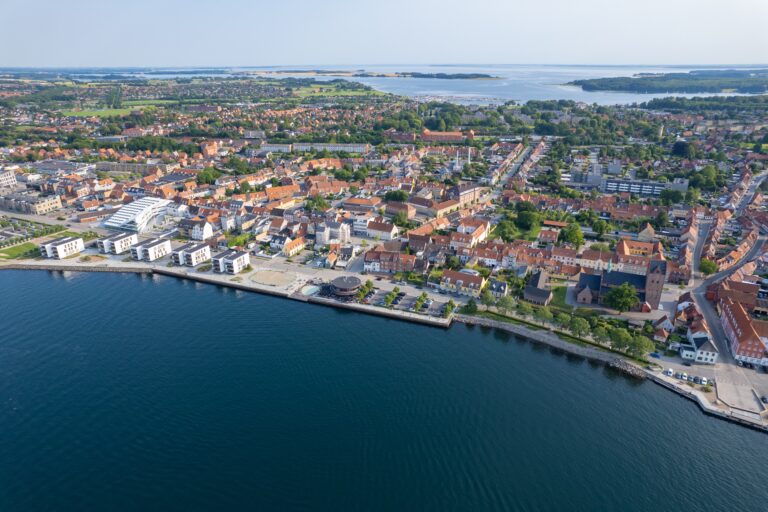PDU Triangle Area
FRom village to legislation
Termonet and the Push for Collective Heating
Termonet is an innovative, decentralised heating solution with potential to serve villages and sparsely populated areas with sustainable heat where conventional district heating is not cost-effective. In 2023–2024, the COHEAT project worked to have termonet recognised under the Danish Heating Supply Act (Varmeforsyningsloven), so that municipalities could issue guarantees and thereby secure financing.
1 juni 2025

Action – Local Project Development and National Influence
COHEAT combined local action with political strategy and technical expertise. In Fjelsted-Harndrup (Middelfart Municipality), a project proposal was developed for Termonet technology, covering 309 properties out of a total potential of 514 — with the capacity to become Denmark’s largest termonet. The project was realised with support from COHEAT, which co-financed, facilitated the process, and assisted in establishing a consumer-owned cooperative (amba).
Rikke Lock, project leader of the Triangle Region PDU, presented the COHEAT project and the Fjelsted-Harndrup proposal directly to the Parliamentary Committee at Christiansborg, with the project also documented in Appendix 278 (2022/23). Her input highlighted termonet as a concrete collective solution and, though not included in the final legislation, informed the decision-making. She further engaged with the Danish Energy Agency and contributed to the NEKST task force, helping anchor termonet as a relevant solution in both technical and political arenas.
From Idea to Project Proposal – Local Efforts in Middelfart
Middelfart Municipality has played a central role in promoting termonet as a realistic and collective heating solution. The municipality participated in the consultation process on the Heat Supply Act, highlighting the need to ensure legal authority and access to financing through KommuneKredit. Together with the heating group in Fjelsted-Harndrup, which later became an amba cooperative, the municipality organised public meetings and workshops to secure local support and ownership. The municipality also entered into dialogue with KommuneKredit about financing options, before it was decided that termonet would not be included under the Heat Supply Act.
Follow-up: The Project was not realised
Although the Fjelsted-Harndrup project was ready for political approval in Middelfart City Council, the citizens chose to withdraw. They felt they lacked sufficient technical expertise, as well as knowledge about operation and finances, and instead wanted a district heating company to take over the project. This became the basis for meetings organised by Dansk Fjernvarme under COHEAT to raise awareness of the Fjelsted-Harndrup project and termonet as a technology. The process shows that even with strong local support and solid technical groundwork, there is a need for secure and professional business models.
Results and Impact
Although termonet was not included in the Heat Supply Act, the effort has had significant impact. Termonet has been highlighted as a serious solution in the green heating transition. The debate has sparked professional and political dialogue, and the project has inspired other municipalities to consider similar solutions. Fjelsted-Harndrup has contributed concrete lessons that future projects can build upon.
This case shows how local action can have national significance. The combination of a concrete project proposal and targeted political advocacy created a strong horizontal process linking practice, legislation, and strategy. It underlines that technological innovation also requires political and organisational readiness – and that legal and financial frameworks must keep pace if citizen-driven solutions are to succeed in practice.
What is a termonet?
A Termonet is a shared ground-source heating system where multiple homes draw from the same underground heat source, each with its own heat pump. It is a green, local, and quiet solution — especially suited for villages where district heating is not an option.
According to the COHEAT report (Dec 2023), solutions like near-district heating and termonet can play a key role in areas where traditional district heating is not viable. With the potential to cover up to 90% of Danish buildings with collective heating, Denmark has a historic chance to deliver green heat at scale - both strengthening a fair transition at home and serving as a model for Europe. Achieving this, however, requires political will to enable a new generation of flexible, decentralised, citizen-driven solutions.
Rikke Lock, Project Manager, PDU Triangle Area


